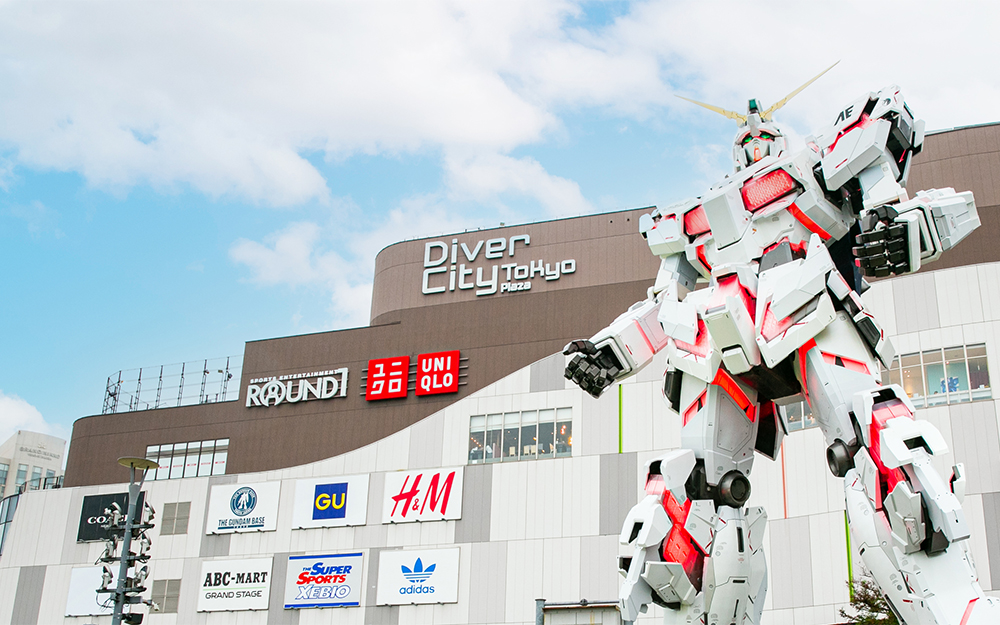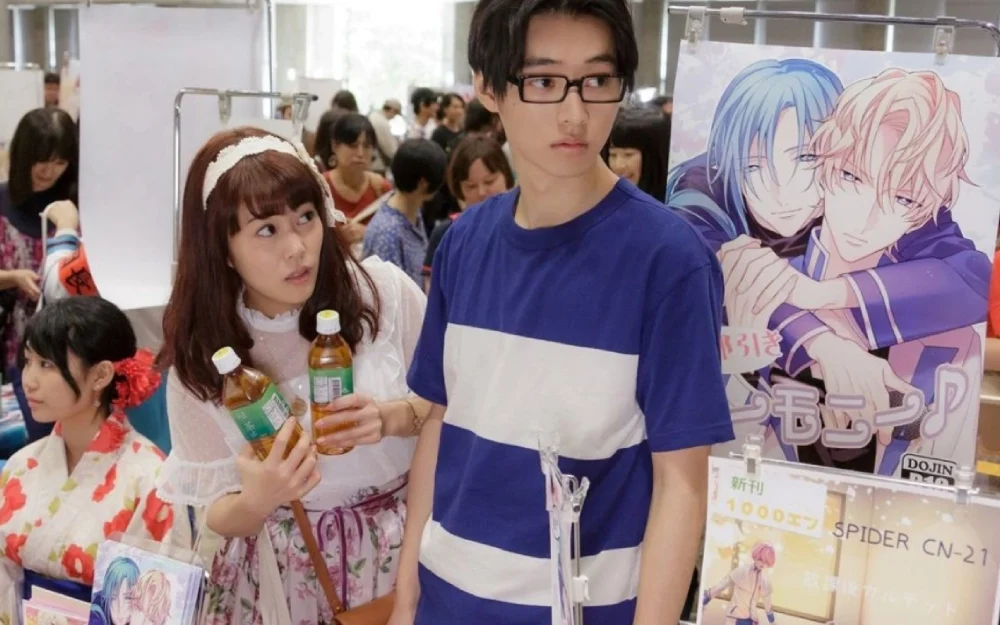The term “Otaku” immediately begs the question, “What is Otaku?” Simply described, an Otaku is someone who has an obsessive fascination with any aspect of Japanese popular culture.
Otaku can be translated into English as “fan” or “fandom” for a group of fans.
Interestingly, the word “Otaku” literally translates to “you” in a number of archaic Japanese dialects, providing insight into the origins of the name.
The meaning of this word goes beyond that of the second person pronoun it is often used to translate. Otaku was originally defined as an honorific when combined with “you.” That phrase is the equivalent of “Your Honor” in English.
However, in the 1980s, the definition of Otaku began to shift as it gradually depicted Otaku in a negative light. At the time, Otaku were viewed as the weirdos, geeks, and nerds who had failed in the social parts of life and have thus fled to the fictitious stories that they adore.
The origins of the name “otaku” and its gradual assimilation into the culture of many young Japanese are still mysteries. The fanbase may have chosen the honorable second person pronoun themselves. It’s complicated, but one theory suggests that anime and manga enthusiasts may have picked the eulogistic label for themselves.
Understanding Anime and Manga’s Popularity In Japan

Having an appreciation for anime may seem unremarkable now, given that your mom, dad, aunt, uncle, and next-door neighbor have all likely seen at least one and enjoyed it.
Like many other aspects of Japanese culture, Manga and Anime have become a cultural symbol in their own right. As televisions became more widely available in the 1970s, several manga were adapted for the tiny screen. This opened the way for many of the all-time greats, such the Mobile Suit Gundam anime that was so beloved by the Japanese at the time.
However, the growing popularity of anime and its fan communities was too much for some people. Extreme antipathy toward anime was seen as a bad thing by some since they believed it would have a detrimental impact on the person’s interpersonal skills.
Otaku were mocked for becoming immersed in their fandoms rather than focusing on more respectable hobbies like music, sports, art, and literature.
During the 1980s, a certain serial murderer who was obsessed with anime gained notoriety, further linking Otakus to criminality. Otaku were stigmatized for more than just being awkward loner geeks. There was a backlash against the more progressive themes in anime, such as those with sexual or violent overtones. As a result, modern manga and anime feature less mature subject matter in order to appeal to a wider audience.
In Japan, Otakus just started gaining positive attention around the turn of the millennium. Today, many people will openly profess their devotion to a certain manga or anime series, and will gladly accept the label “Otaku” to describe themselves and their fellow fans.
The Otaku Killer and His Negative Impact on the Otaku
Otaku had a negative connotation before 1989 since it was the Japanese equivalent of common Western insults for persons who are on the nerdy or geeky side. But it was the year that the general public’s perception of Otaku shifted from being moderately disparaging to being entirely negative.
What happened in 1989 to cause such a big deal about anime? Tsutomu Miyazaki, one of Japan’s most notorious serial murderers, was apprehended and charged with many murders in 1989. His victims were young girls between the ages of four and seven, all of whom he had chosen to kill.
To be clear, the horrifying details of the Otaku Killer are beyond the scope of this post, but if you’re interested, you can always look them up on Google. Instead, we’ll take a quick look at how Tsutomu Miyazaki’s personal life had a significant influence on his work and the anime industry as a whole.
From the beginning, Tsutomu Miyazaki’s life had been fraught with difficulty.
Because of the continual mockery from his peers, he struggled academically because of his physical impairments.
He wasn’t good enough to go into Meiji University, so he pursued an occupational career instead. Also strained were his personal relationships, the fault of which he bore sole responsibility. His relatives didn’t share his distaste for porn and violence, so they stopped talking to him.
Tsutomu Miyazaki was known as “Otaku Killer,” “Little Girl Murderer,” and many more names when he was convicted of murdering four young children in 1988 and 1989.
Yet, when the police made the arrest, they discovered a frightening collection of manga and anime, leading the public to speculate that his love of such works and of gore pictures may have inspired him to execute the heinous acts that he did. People started looking down on Otaku after they learned of the role they played in Tsutomu Miyazaki’s biography.
The general population began to believe that persons who regularly consume violent media like anime and manga would act violently too, in an attempt to live up to the standards set by the stories they read.
Some readers may find the details of Tsutomu Miyazaki’s story to be exaggerated, however. He did had a large collection of manga and anime, but the cops may have been putting too much blame on his penchant for violent media.
It’s possible that his troubled upbringing and adolescence served as a catalyst for his interest in gore films and erotica, but others missed the bigger picture. Perhaps his life would have ended on a happier note if he had been treated with more kindness and respect by his peers and family members when he was younger.
Otaku Today, Its Acceptance and Further Development

Because of the shift in values brought on by progress, Otaku culture is now widely accepted in modern Japan. People who enjoy manga and anime are no longer looked down upon for their interest in the medium; rather, they are seen as regular folks whose hobbies happen to be the same as anyone else’s, only in manga and anime form.
Back then, only nerds could have serious respect for anime. They couldn’t possibly be anime fans if they were among the popular, athletic, and gorgeous teens. The Otaku lifestyle is now universally accepted across all socioeconomic classes.
The amount of people who watch anime annually increases. Despite the fact that manga and other printed media are losing ground to the rapid development of digital technology, anime’s popularity is spreading far beyond Japan. Anime has a devoted fanbase not only in Japan and other parts of Asia but also in the West. Otaku is not only widely acknowledged, but also intensively studied as a distinct subset of human behavior.
Today’s otaku are no longer pigeonholed as shy, untalented losers, but rather as enthusiastic devotees of any subject. In recent years, the term “Otaku” has come to encompass a wider range of hobbies and interests than just those related to Japanese animation and manga.
These days, the term “Otaku” can be used to describe anyone who is deeply invested in a particular interest.
Young people all around the world aspire to earn the label of “Otaku” due to the culture’s growing popularity. Various countries host festivals, conventions, and other gatherings for otaku. More evidence that the term “Otaku” no longer has a pejorative meaning.
It can no longer be denied that Otakus are accepted with open arms in every corner of the globe. They can finally find other people who share their love in odd anime, and they can stop feeling like the only ones in the world who like it.
It’s evolved from a means of alienation into a medium for communication amongst people with shared interests.
Otaku and Economic Impact
The current economic climate is remarkable in that it allows even the most specialized industries to propel the entire country. It’s fascinating to see how Otaku (essentially fascination with anything) has become a significant part of the Japanese economy despite having been stigmatized in the past.
The economic impact of Otaku is not insignificant, as the annual sales of Otaku-related goods (including anything from anime and manga to niche Japanese hobbies) total almost $18 billion.
Businesses have been able to flourish as a result of the demand for Otaku or fandom-related stuff. It’s no wonder that Japan is the biggest market for merchandise based on fictional characters, as the country is home to cutting-edge manufacturing technology.
Anime enthusiasts used to be looked down upon for being wasteful in their devotion to the medium, but times have changed. If you have a passion for something, society strongly recommends you invest your money in that enthusiasm.
Collectors of manga, for instance, can now show off their extensive library to admiring onlookers, who would likely exclaim things like, “Your collection is fantastic!” and “I am incredibly jealous!”
In the future, anyone with a large collection of their favorite anime’s figurines can make even more money by selling the outdated ones. This further demonstrates the successful nature of Otaku-centered enterprises.
In addition to the usual merchandise, fans of anime and manga can also visit one of the many cafes and shops (mainly in Akibahara) that feature these characters as their inspiration. Maid cafes have found success in Japan thanks to the widespread popularity of “maid culture” stories in manga. A group of friends can sit and chat over coffee or tea served by wait staff disguised as housekeepers.
Otaku fans are encouraged to spend money at these types of businesses so they can have an authentic anime experience. Tourists also seem to find specialty shops fascinating, which is good news for the proprietors.
Since business, Otaku culture, and technology have all been on the rise in recent decades, it was only a matter of time before anime merchandise took over the Internet, the largest marketplace in the world. Retailers who operate solely online enjoy a massive presence online.
Otaku have had to adapt to a drastically different cultural climate, looking back. It’s simple for everyone involved in a fandom to satisfy their shopping urges with a wide variety of products. Fortunately, the Japanese economy is benefiting from this trend as well, so it’s not only the Otakus who are pleased. That’s an ideal scenario in which everyone benefits.









